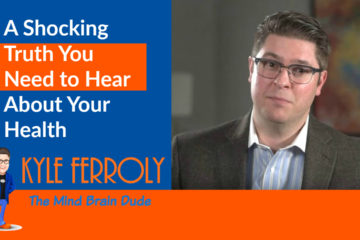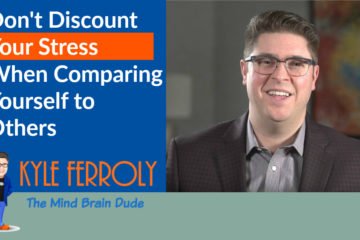The Little Difference between Stress and Chronic Stress
Just about everything we experience filters through our conscious awareness or thinking mind. Sights, sounds, tastes, smells, experiences, memories, even what we hope the future holds. Each of us has a belief system or at least an expectation for a given event and how it should unfold. When things align with how we would like them to go, we feel in control and are happy. However, when things do not happen on our watch, nor how we would like them to go, we enter a disconnect between the reality around us and our mind’s programming. This disconnect is what flips the switch between feeling safe and ok and alarming our fear system where something needs our attention promptly. Thus, stress isn’t all bad, it’s a warning sign that we need to attend to something that we perceive as not being right. However, let’s see what happens if stress continues in the rest of this blog.
The common term for this occurrence is the stress response or flight or fight response. Going back to caveman days, it was what happened if we feared our life was in danger. Nowadays, it is often less severe things setting off this same alarm in us. What most people don’t realize is that not only does our mind experience this sense of discomfort and worry, but our bodies and brain also experience this negative and debilitating changes during these instances. In other words, stress impacts us at a deeper level past how we think and feel.
If that doesn’t perk your interest, this should: a critical part of our brain loses connection with other relevant parts as it’s not needed in a survival flight or fight moment. This limits our ability to think clearly, have emotional stability, control our impulses, think before doing, etc… Can you see how losing this part of your brain during stress could set you back in your personal and professional lives?!
The problem lies in the fact that the same physiological trigger is activated if we have a gun to our head and if the internet goes down in the middle of our favorite Netflix binge. One is life or death, and the other appears to be life or death, yet really isn’t when we process the situation with a calm and rational mind. When we react this mechanism (flight or fight/stress response) our bodies prepare for battle. This physiological shift into fear mode can take an hour or more before we regain a healthy resting state or baseline functioning.
Chronic stress is what happens when we continually send messages to our body and brain that a problem exists between what we are experiencing and what and how we expect something to play out in our world. Thus, chronic stress weakens our ability to think clearly, have emotional stability, control our impulses, think before doing, etc… (Yes, I repeated the same line as above, hoping you see it again)
We can even engage this flight or fight mechanism just thinking about an event, not even physically experiencing it. Take Post Traumatic Stress Disorder (PTSD) for example, where a veteran of war, or victim of abuse, can recall traumatic memories of past events and feel like he/she is currently engaged in such an event, yet the individual is safe and only “thinking” about the event that is of great threat or fear. Or take somebody who is fearful of spiders or snakes, just the mere thought of a spider or snake can immediately evoke physiological changes in the body. Thus, thoughts are powerful, memories become the filter in this process, and the environment is only half the battle.
My mission is to help people de-stress, by looking at not only their thoughts, but their brain and body’s nervous system that is tied to the stress response. My method is unique because I look beyond the mind and the thoughts we have. We need to look beyond the problem we think about and examine where and how it started in our brain and body after the thought or perception. It’s not enough to just try and change your thoughts in today’s complex and fast-paced lifestyles we all have.
As Albert Einstein says, “Problems cannot be solved with the mind that created them.”
I want to help people who don’t know they need the help, but know something isn’t right. You have to get in front of your problem and develop a new way of seeing the problem. Maybe it’s focus and concentration? Maybe it’s irritability, short fuse, or weakening relationships in both the work and personal areas of ones life.
We all have the same issue. It’s called stress. It’s become second nature and commonplace in almost all of our lives. We often joke around about how stressed we are but we do nothing about it. I want to teach people a new way of living.
More about Hiring Kyle for your Next Event by CLICKING HERE



0 Comments